Guide to Facebook Post Image Resolution and Quality Fixes
Facebook is among the most popular places to post pictures. But most of the time, individuals find their photos getting worse in quality as soon as they post them. This is usually because the photo does not meet Facebook's size and format specifications. When that happens, Facebook will compress the image, which can make it look blurry or pixelated. To avoid this, it's best to post your image at the correct resolution and format. Here, you will learn the best image resolutions for Facebook post image resolution in 2025, how compression works, how to prepare your photos like you need to, and which programs will help you keep your photos crisp and clear.
Part 1: Standard Facebook Image Resolutions You Must Know
Your profile picture is one of the most seen photos on your Facebook page. The maximum desktop size should be 170 x 170 pixels, but on an iPhone it will appear to be 128 x 128 pixels. It should be square and contain your face or company logo. Facebook will make it round automatically, so it's a good idea to have the center part of your image there. They only accept either PNG or JPG format but PNG has prettier edges for logos or text and graphics.
Cover Photo Dimensions
The cover photo is a wide banner which appears at the top of your Facebook post image resolution profile or page. On desktop, it is 820 x 312 pixels. On mobile, it is 640 x 360 pixels. Because the size changes depending on the device, try positioning important details in the middle so that they will not be cut off. JPG suits pictures, and PNG suits design or text.
Post Image Size for News Feed
When you create a standard photo post on your Facebook page or timeline, 1200 x 630 pixels is the ideal size. This follows the 1.91:1 layout ratio that Facebook employs. Using the correct size prevents Facebook from resizing the image and lowering the quality. Large images with odd shapes may get cropped or compressed, making them look fuzzy.
Facebook Ad Image Guidelines
If you're promoting, you must submit images that are 1080 x 1080 pixels in dimensions for a square ad or 1200 x 628 pixels in dimensions for a landscape ad. These are an exact fit in Facebook's ad size. Make sure that the image is simple and has little or no text since too much text decreases the ad's reach.
Part 2: How Facebook Compression Affects Image Quality
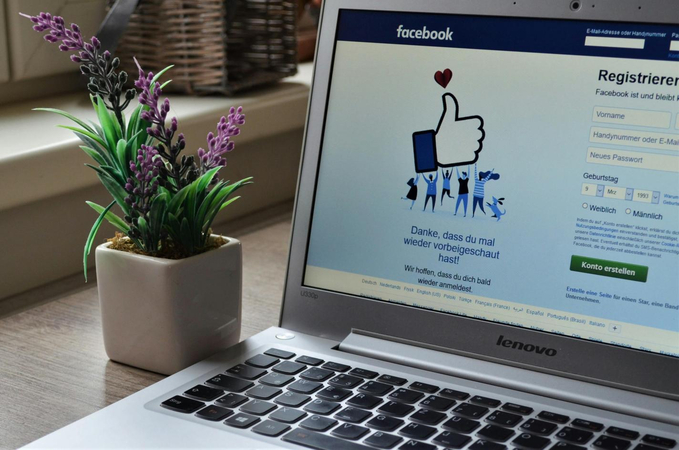
When you upload a picture, Facebook scales it down to make it load faster for people. This means that it reduces the file size by trimming off some of the image information. The effect is that the picture can look softer, less crisp, or slightly pixelated. This is more noticeable when the original file is too large or does not conform to Facebook post image resolution recommended size.
Impact of Wrong File Size or Aspect Ratio
If your image is not the same size as Facebook expects, it will be resized to fit. Some of it will get cropped, or it will be forced into a smaller area. If the file is too large (like more than 1MB), the site will compress it more aggressively. This kind of compression usually makes detail get lost, especially in the background or in textured areas.
How to Avoid Compression Problems
Best method to avoid quality loss is to prepare the image before posting it. Reshape it into Facebook's ideal dimensions. Store it in high quality but try to keep it under 100KB so that you don't get compressed unneccessarily. When one uploads from computers, the pic usually comes across as sharper when compared to those uploaded via cell phones.
Part 3: Tips to Prepare High-Quality Images for Facebook Posts
Prior to uploading, shrink your pictures in accordance with the Facebook specifications. For example, post photos ought to be 1200 x 630 pixels and adverts 1080 x 1080. Doing this means Facebook won't resize them, and your material will still be sharp and crisp.
Use the Best File Format
JPG is best for pictures with lots of colors and details. It's a nice compromise between quality and file size. Use PNG for logos, design, and any picture with text because it keeps edges crisp. Avoid using formats like TIFF or BMP because they're not web-friendly.
Export Settings That Keep Quality
When exporting your picture, export at high or medium quality settings. Don't use "low" or "small file size," because this reduces picture quality. Try to get the file size less than 100KB if at all possible without reducing resolution. Online picture compressors can be used for that.
Mobile vs Desktop Uploads
Photos uploaded from a desktop tend to have more quality than if uploaded via mobile. If at all possible, prepare and upload your photos using a computer. That way, Facebook gets the complete version and can potentially use less compression.
Part 4: Best Tool to Improve Facebook Post Image Resolution
HitPaw FotorPea is one of the best tools for making your images clearer before uploading to Facebook post image resolution. It has a special feature called "Realistic Denoise Model" which removes grainy parts of the photo and makes it look cleaner without losing detail. This is very helpful if you're working with photos taken in low light or with noise.
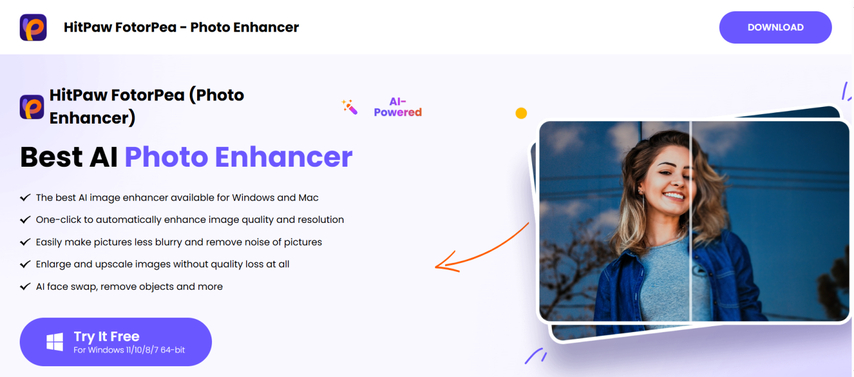
Pros:
- Very easy to use
- Great at cleaning up noisy images
- Compatible with photos and design
Cons:
- Some features require payment
- Web version slow on slow internet connections
Improve Facebook Post Image Resolution in Seconds
Step 1: Download and Install HitPaw FotorPea
Download HitPaw FotorPea to begin enhancing your Facebook post images.
Step 2: Upload the Original Photo
Click "Choose File" or simply drag your photo into the workspace.

Step 3: Select AI Model
Choose the "Realistic Denoise" model to boost your image's resolution.
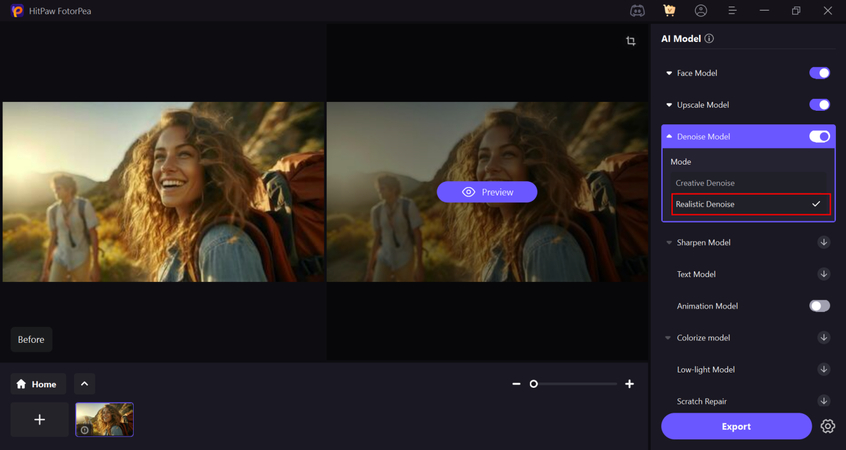
Step 4: Preview the Effect
Preview the sharpened image, then click "Export" to save the final result.
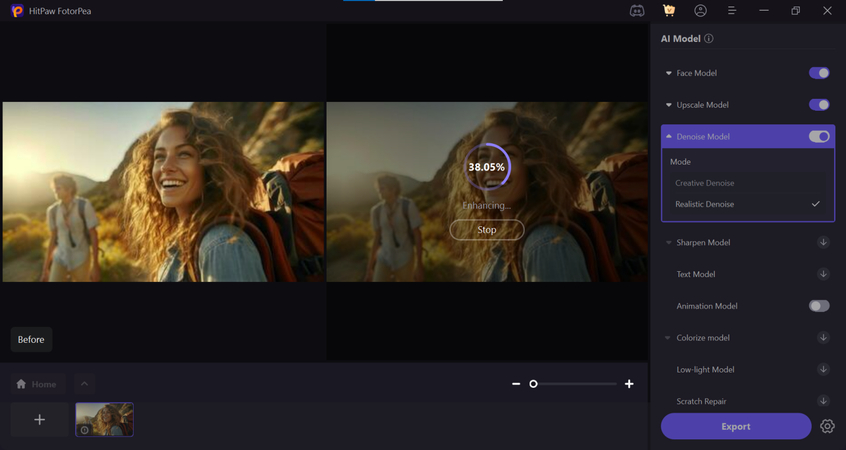
FAQs
Q1. Why does my Facebook post image look blurry even though it's HD?
A1. Facebook re-sizes all images so they upload easily. Even if you upload a high-quality picture, it may be re-sized or compressed if it is not the optimum size or file format.
Q2. Do I use PNG or JPG on Facebook posts?
A2. Use JPG for regular photos and PNG for photos with text, logos, or cutting edges. PNG maintains fine details better, but JPG gives a smaller file size.
Q3. Can I enhance low-quality images after uploading them on Facebook?
A3. No, once uploaded, you cannot improve the quality of your image on Facebook. It's better to adjust the picture before upload by resizing and sharpening it using editing software.
Conclusion
To make your Facebook post image resolution sharp and clear, always follow the recommended sizes and file types. Shrink your photo beforehand and edit with tools to improve quality before upload. Don't upload big images or odd shapes because this triggers Facebook's compression algorithm. Programs like HitPaw FotorPea with its "Realistic Denoise Model" are very handy at cleaning up your photo and keeping it sharp. With proper procedure, your photos can be much better when displayed on Facebook.


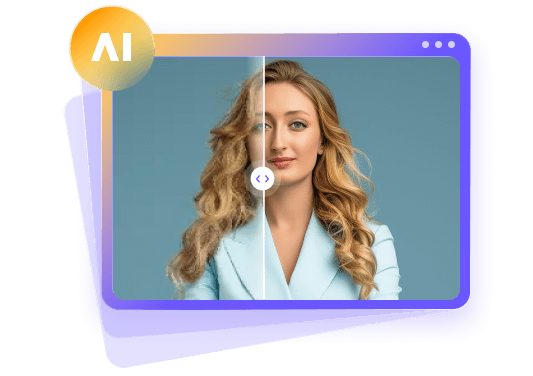




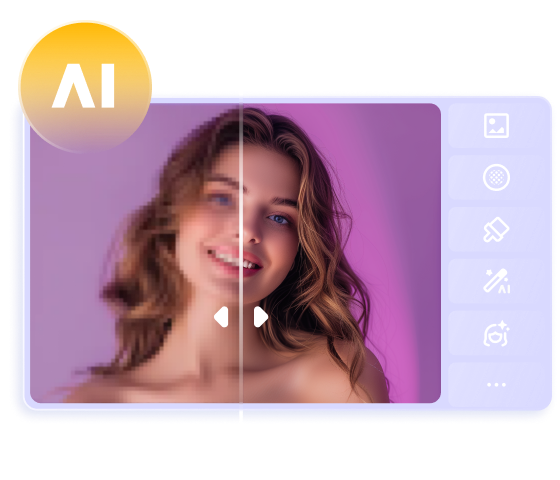
 HitPaw Univd (Video Converter)
HitPaw Univd (Video Converter)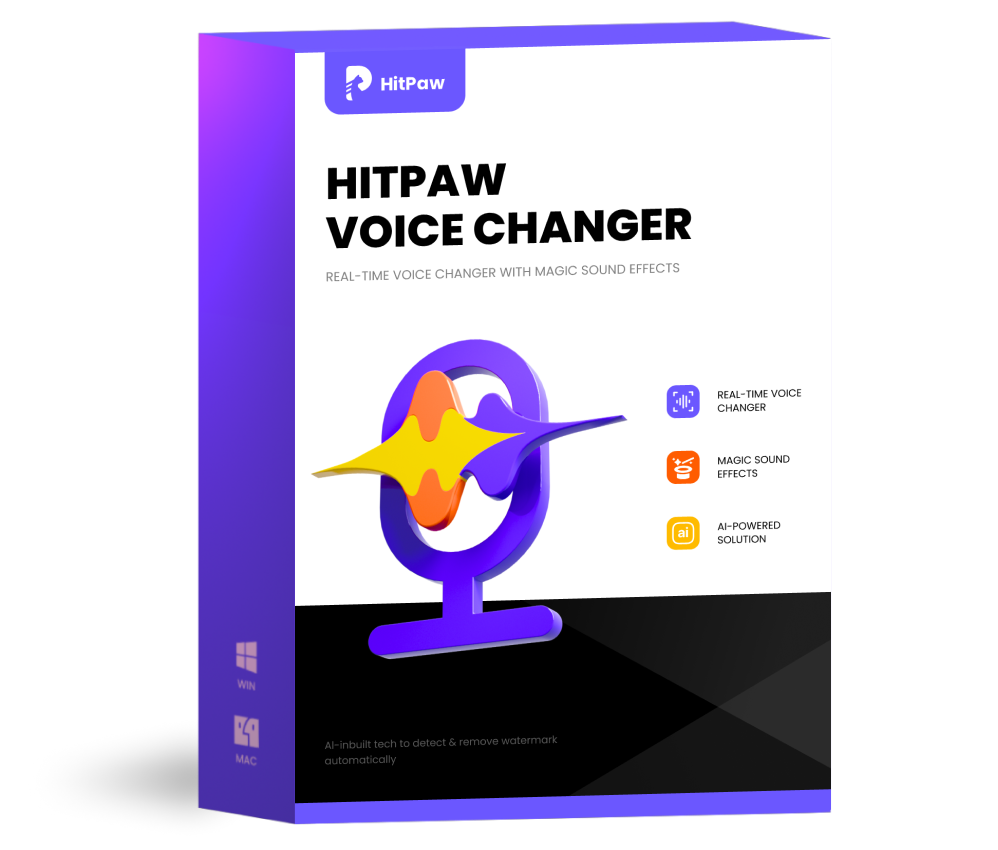 HitPaw VoicePea
HitPaw VoicePea  HitPaw VikPea (Video Enhancer)
HitPaw VikPea (Video Enhancer)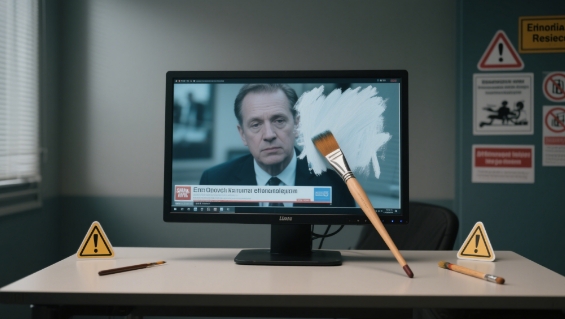



Share this article:
Select the product rating:
Daniel Walker
Editor-in-Chief
This post was written by Editor Daniel Walker whose passion lies in bridging the gap between cutting-edge technology and everyday creativity. The content he created inspires the audience to embrace digital tools confidently.
View all ArticlesLeave a Comment
Create your review for HitPaw articles